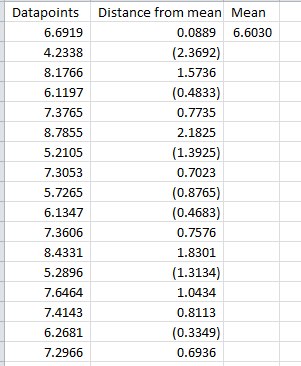One of the questions I’m often
asked (aside from why moving from Paris to Atlanta) is about the cost of life
here compared to France. There is no simple and straight answer to that
question: it depends!
Writing that post has not been as fun as expected. First because it made me think about the way we live and maybe what we should change. Second because it felt like bits and pieces put together and no real "story telling". Hopefully I'll find a better way to write that type of article next time !
Here are some factors to keep in mind first:
- Without credit score, driver or
payment history, we have to pay more for some services and prices should
decrease 6 months after our arrival (3 months to go, yay!).
- We are living outside of Atlanta,
a region known for its moderate/low cost of life.
- We have our habits and even
though we are adjusting, our way of life is still very much French, which must have an impact on our budget.
- Taxes (usually 20%) are
incorporated in prices in France, and we don’t tips above a couple of Euros (as
staff is paid decently).
Household spends
Rent is quite difficult to assess
rent as it depends on city, square feet available, neighborhood, demand, etc.
It is overall in line with what we would have paid in France for a similar
place in a similar area.
We pay electricity a small
fortune because we didn’t had a national issued ID when opening the line, that
should go down in 3 months, and we’ll get our deposit back. For the rest of
utilities, prices are comparable to France.
For a small price, we’ve
subscribed to insurance for our goods as the landlord insures the house. In France,
we would have paid it all, spending more money than here.
TVs are a about half price here
than France, but other major appliances can be more expensive because of their
sizes, such as refrigerator, washer and dryer…
Car expanses
First, I need to point out that
cars are more expensive here, maybe because they are bigger. Insurance (again,
no driver history) is insanely high, as we pay nearly ten times what we used
to. But gas on the other end is so much cheaper (around 1.50E per liter when we
left compared to $2.20 a gallon these days).
Getting our driving licenses cost
us less than $50 each. In France, including mandatory driving lessons and
vehicle registration fees cost around 1500E minimum.
Don't start me on parking... I hate to pay for it and it is usually much more expensive here (you can always find a small street where you can park for free in Paris!).
Health expanses
France is famous for its
healthcare policy paid by taxes on labor. Most of what we used to pay was taken
directly from our incomes; otherwise it was some small amounts of money for
auto medication.
While we haven’t had to go to the
doctor yet, we spend quite a lot on our health insurance. We’re happy to find
many more over-the-counter drugs here, which prevent us from useless doctor
appointments (allergies, small colds, non-severe skin conditions…).
Overall, health, if taken
seriously and without any chronical disease, is a lot more expensive here.
Food
This one surprises everyone:
healthy, fresh food is more expensive in the US than it is in France! On the
other hand, junk food and poor quality processed food is cheaper here.
Butter is about twice the price
here, fruit juice is about three times the same and milk is cheaper though.
Tomato sauce is also twice the price, bread and "French like" cheese we don’t even consider buying as
the price and quality difference is ridiculous. Chicken is cheaper, but beef is
more expensive. Yogurts and cheese are also more expensive here, with a lower
quality.
What surprised us more about food
is how quickly prices evolves here (within a week price can double or be cut in
half) whereas they are more stable overall in France.
Communications
We used to have a internet + TV combo with our French provider for which we paid less than 50E. Now with AT&T we have doubled our invoice for the same service (and about 500% more commercials on all channels at all times...).
I used to have a company cell phone and still have one now, so no change there. As for my husband, he went from 20E a month for unlimited calls, texts and data (including international calls for most countries) and we're now paying almost $100 for the same service. Though, LTE is way better than the 3G/4G I used to have!
In a nutshell, communications are as expensive here as they were in France 10 years ago, before a very competitive provider decided to drastically cut his prices. Can't wait for it to happen in the US too!
Beauty products and clothing
It usually comes as a surprise too, but both beauty supplies and clothing items are overall cheaper in the US. Or to be more accurate, you have more opportunities here to buy cheap make up/clothing items than in France. And outlets are packed with good deals.
Obviously, French brands are more expensive here. And the US have a lot of high end brands (maybe more than France as you get French brands here but France don't get American ones).
I also found many offers here that will encourage you to buy more. So even if it's cheaper and a good deal, you still end spending more.
Culture / going out
Culture in general cost about the same price, except for magazines. For some reason, when most feminine ones cost less that 2E in France, here they are worth twice that. The good think is that I can always go to Barnes & Nobles, order a Starbuck and read my magazines there before putting them back on shelves.






























